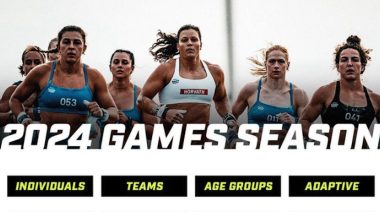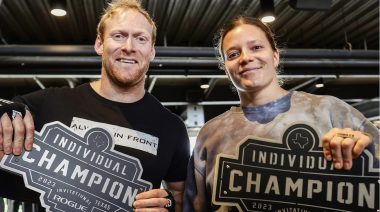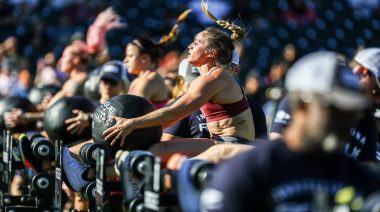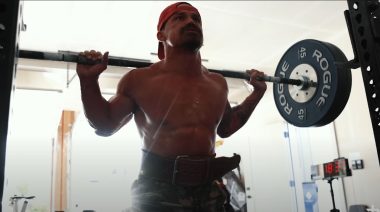A journalist from one of Australia’s biggest newspapers has sparked outrage in a controversial review of CrossFit and weightlifting athlete Tia-Clair Toomey’s recent performance at the Rio Olympics.
Toomey travelled to Rio weeks after securing second place at the CrossFit Games. [Photo credit: CrossFit, Inc.]
Roy Masters detailed Toomey’s 189kg total performance in Rio with clear negativity, listing her as “only the 14th strongest” woman in the world and commented that “clearly all that exercise…does not prepare a woman for the snatch and the clean and jerk of Olympic weightlifting.”
Fellow CrossFit Games athlete Khan Porter came to Toomey’s defence on Monday night in an open letter to the Sydney Morning Herald on his Facebook account. He commented:
“I’m genuinely blown away by [the] bad mouthing of such an incredible young Australian athlete…particularly…when we should be a nation united in support of our athletes, rather than belittling their efforts.”
He tagged CrossFit and the CrossFit Games’ Facebook accounts in the post, believing Masters’ outburst to be driven by a negative opinion of the fitness movement.
Regardless of the source of his alleged bias, the coverage does appear quite ruthless in its assessment of Toomey’s performance. Masters accentuates her lower ranking in the Group B of her weight category, highlighting that there were nine other athletes “well ahead” who “bettered” her. Masters also outlines the gap between the Chinese world record totals in the snatch and clean and jerk and Toomey’s own efforts, despite his own admission that she has only been training in the sport for eighteen months.
At times it’s a little hard to believe the article was written by a fellow Australian and not another competitor’s national press. Either way, the tone of the piece is surprisingly critical, given Toomey’s performance on weightlifting’s biggest stage just a month after competing at another elite-level event.
It could be that Masters does hate CrossFit. Or maybe just doesn’t care for the Australian Weightlifting Federation. Either way, the piece and its insinuations are not the finest examples of high-level journalism, and that’s coming from someone largely unattached to the arguments that surround CrossFit and its validity as a sport.
To sneer at an athlete’s effort on a platform like the Olympic Games takes a prodigious ignorance of the achievement of even qualifying, to say nothing of a wilful rejection of the feelings of the athlete involved. Masters’ evidence of both puts this article in the running to be one of the most unsporting and downright ugly pieces of journalism to surface around this year’s Summer Olympics.






